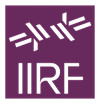Faith, hope, and power
Corporatism, ideology, and religious freedom in China from Mao to Xi
DOI:
https://doi.org/10.59484/HOLC5744Keywords:
China, religion, state corporatism, religious freedomAbstract
Xi Jinping’s renewal of authoritarianism in the People’s Republic of China (PRC) highlights the way in which patterns of repression change over time. Xi’s effort to reinvigorate party rule hearkens back to earlier periods of repression but has not reached levels common during the early years of the PRC. This pattern holds for the regulation of religion in the PRC. This article considers the PRC’s manage- ment of religion, in particular Christianity, over the past seven decades. Whilst authoritarianism has taken diverse characteristics, one permanent feature of government repression in the PRC is the pursuit of state corporatist management of religion.
Downloads
Published
Versions
- 2024-04-22 (4)
- 2024-04-22 (3)
- 2024-04-19 (2)
- 2024-04-19 (1)
Issue
Section
License
Copyright (c) 2024 Creative Commons Attribution 4.0 International (CC BY 4.0)

This work is licensed under a Creative Commons Attribution 4.0 International License.
Creative Commons Attribution 4.0 International (CC BY 4.0)





 The International Journal for Religious Freedom (IJRF) is an international peer-reviewed journal published by
The International Journal for Religious Freedom (IJRF) is an international peer-reviewed journal published by 